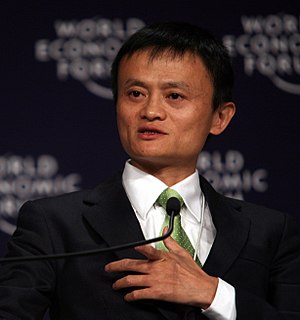What do the founders of Netflix , Zappos, Whole Foods, and Alibaba.com have in common? Image via Wikipedia
Image via Wikipedia
 Image via Wikipedia
Image via WikipediaThey were all started by entrepreneurs in their second (or third) act:
- Before Reed Hastings founded Netflix, he founded Pure Atria Software, which was eventually acquired by Rational Software. Soon after the acquisition, Hastings took a couple of years off to think about his next business, which would be Netflix.
- Before Zappos, Tony Hsieh founded LinkExchange, which was acquired by Microsoft for $265 million in 1999.
- John Mackey started a health food store called “Safer Way” in a garage years before he founded Whole Foods.
- Jack Ma founded China Pages four years before he launched Alibaba.com in 1999.
 Image via WikipediaTake a look around and you’ll find that many entrepreneurs find their biggest success in their second act. In fact, I’d argue that having a chance at a second act is one of the best reasons to build your first business to sell it.
Image via WikipediaTake a look around and you’ll find that many entrepreneurs find their biggest success in their second act. In fact, I’d argue that having a chance at a second act is one of the best reasons to build your first business to sell it.1. You’ll feel less pressure.
When you are scraping tooth and nail to make something of your first business, every decision feels like do or die. Like a 16-year-old driving on the highway for the first time, new entrepreneurs tend to be a little heavy on the wheel, blowing every small problem into a life-threatening emergency (I know I did). In a second act, entrepreneurs mellow a bit and have a steadier hand at the wheel. Once a business owner has become financially independent, the pressure to succeed to feed your family is off.
2. You’ll be a better leader.
Being a bit mellower, entrepreneurs in their second acts often are better bosses. They tend to be a little more willing to give others credit and let juniors make mistakes — within reason — instead of micromanaging every detail. Like a parent who enjoys coaching his kids more than playing, the second-act business owner wants to succeed as part of a team, not just as an individual.
3. You’ll be motivated by a higher cause.
Once entrepreneurs are no longer motivated exclusively by making money, they are forced to find larger reasons for doing what they do — to start to think of how they can have a bigger impact on the world and make a difference. Being motivated by something other than money makes a founder much more likable as a leader and, therefore, better able to attract good people — loyal employees, partners and board members who want to contribute to a cause — to their mission.
So go ahead and build your first business — get the pressure, the mistakes, and a little bit of success out of the way. Then sell it and get to work on an even better second act.
John Warrillow is the author of Built To Sell: Creating a Business That Can Thrive Without You, which will be released by Portfolio/Penguin on April 28, 2011.



No comments:
Post a Comment